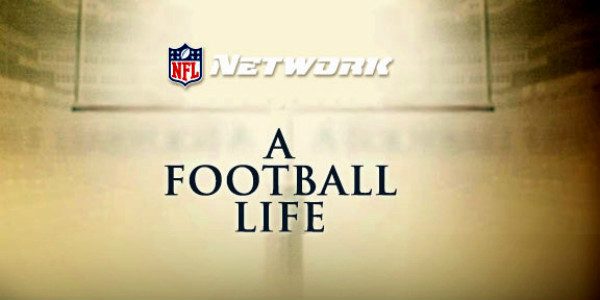 In the wake of San Francisco 49ers QB Colin Kaepernick’s decision to sit out the national anthem at a game — and other players subsequently following suit — there’s been a lot of trash-talking about the NFL.
In the wake of San Francisco 49ers QB Colin Kaepernick’s decision to sit out the national anthem at a game — and other players subsequently following suit — there’s been a lot of trash-talking about the NFL.
This ignores the fact that only a small percentage of players went along with the protests. Also, it didn’t involve all the teams. For example, my team, the Seattle Seahawks, played its home opener on Sept. 11th. While some of their opponents, the Miami Dolphins, kneeled during the anthem, the Seahawks — players and coaches — stood side by side, arms interlocked, in a sign of unity.
Here’s a fan-posted video:
The team came to this after much discussion, which included a talk by Nate Boyer, a longsnapper and former Green Beret who was with the Seahawks for training camp and the preseason in 2015.
I had confidence the Hawks would come to a good decision, since I’ve gotten to know some of the players through interviews, profiles, and their social-media posts. I knew that wide-receiver Doug Baldwin, QB Russell Wilson, cornerback Richard Sherman, coach Pete Carroll, and other guys, all bright and with good hearts, would work it out.
Of course, there are a lot of bums and bad actors in the NFL. Take roughly 1,700 active players in any given season, add in practice-squad guys, free agents, and inactive, former and retired guys — stir in a potent blend of celebrity, sex and money — and you’re going to get a certain percentage of men who do bad things.
On the other hand, there’s also an element in modern society that loathes traditional masculinity. For them, the rough-and-tumble world of professional football — along with the military and law enforcement — exemplifies their vision of testosterone-fueled boneheadedness.
But over the last couple of years, since I discovered I had NFL Network on my cable system, I’ve become addicted to some of their original shows. One of them in particular has had a huge effect on how I see the men involved in football.
“A Football Life” profiles current and past players, coaches and others. These remarkable portraits, done by the always-excellent NFL Films, dig into the histories, issues, tragedies and triumphs of NFL notables over the last few decades. It’s sympathetic but unsparing of the difficult details.
Over and over again, I’ve been struck by the horrific childhoods some of these men have overcome, their struggles with their own demons, their fierce but imperfect love for their families, and the powerful bonds that they form with each other. Some stories have brought me to tears.
At times, you can clearly see where one man is his own worst enemy. Conversely, you see where another man becomes a blessing to his teammates, family and community.
Recently, one subject of “A Football Life,” former New Orleans Saints player — and Catholic — Steve Gleason was the center of a feature-length documentary. “Gleason” is a clear-eyed and powerful chronicle of Gleason’s — and his wife’s — struggle with the debilitating disease ALS, for which he has become a fundraiser and champion from his wheelchair.
Today, I watched a portrait of Hall of Famer Curtis Martin. I can’t embed the episode or even the trailer (they’re all available at NFL.com), but here’s the Hall of Fame acceptance speech it excerpted. I recommend watching the whole thing.
The NFL is 70 percent black, and some of its problems are the result of the problems of the black family today, whether it’s violence, poverty, fatherlessness, drugs or gangs. Not all black players come from tough neighborhoods or broken families, but a significant percentage do.
Some of these men are unable to escape their backgrounds even if they find NFL success, but it’s obvious that many of them would be dead or destroyed if they hadn’t found the challenge, structure, discipline and outlet of football — and found the father figures that came from coaches, other players and even owners.
In the episode, Martin spoke movingly of being invited to Jewish holiday celebrations at the home of New England Patriots owner Robert Kraft. Growing up poor in a violent broken home in Pittsburgh, his abused single mother didn’t have the money to provide traditional gifts. Sitting at a holiday meal with the Krafts was the first time Martin — a Christian who made a bargain with God to survive his 21st birthday — knew what it was like to come together as a family in faith.
In 2014, I saw the story of current New York Jets receiver Brandon Marshall, who overcame a difficult childhood and borderline personality disorder to become a happy family man and spokesman for mental health.
Other “A Football Life” profiles have looked at brotherhoods among players; a guy who was deemed too small who overcame to succeed; a gay player before such a thing was considered chic; a player who was beloved but troubled; and a star Catholic QB who just seems like a thoroughly happy man.
There’s a lot made these days of misogyny, but there’s also misandry, in which the character, heart, motivations and emotions of men are denigrated or discounted for political aims. By any measure, NFL players are the outwardly most manly of men, but peel a layer or two away, and they’re just as complex and nuanced as anyone else.
Here’s one little example. On Thursday, a friend and I were watching a game between the New York Jets and the Buffalo Bills. One of the Bills players is named Nickell Robey-Coleman. Curious about the hyphenated name, I Googled him, and learned it was his own choice, one made to honor a woman he loves.
“It was a neat moment. It was a historic moment for me,” Robey-Coleman said of seeing his new jersey for the first time. “This name is going to go on through my whole NFL career. It’s going to carry on to my kids, whether I have sons or daughters. Maybe they’ll play in the NFL, or they’ll go to college and compete there. I wanted to make it their name now.”
Robey’s mother died in 2010 at the age of 44 after suffering a massive heart attack. Shortly before she passed away, Robey-Coleman committed to the University of Southern California. After her death, he vowed to one day make it to the NFL and always make her proud.
“That makes me go,” Robey-Coleman told The Buffalo News last year, speaking in depth about the impact the passing of his mother had on him. “I know if she was living, she’d be appreciating everything that I’m doing and pushing me through it. This is all for her. My whole game, the way I play, is all for her. I know she’s watching.”
Adding Maxine’s last name is another way to guarantee her legacy is never forgotten.
“It’s a bloodline thing,” Robey-Coleman said.
It’s hard not to love Robey-Coleman at least a little bit after that.
So before you trash the whole NFL, remember it’s made up of individual people, and each one has his story — and some of these stories will blow your mind or break your heart.
Image: Courtesy NFL Network
Don’t miss a thing: head over to my other home at CatholicVote and like my Facebook page; also like the Patheos Catholic FB page to see what my colleagues have to say.













